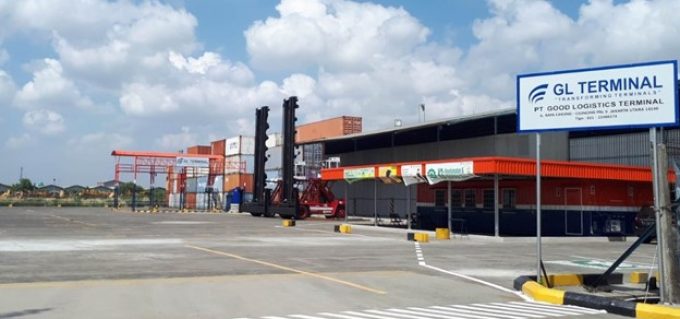Rhenus rises to the Indonesia challenge with operational expansion
Rhenus Logistics has opened a fourth office in Indonesia, despite a “very challenging” year in ...

A new tech-focused container depot has opened in Jakarta, with the firm’s founders set to modernise Indonesia’s inland box logistics.
GL Terminal is the latest project from logistics veteran Paul Good, who, after heading an Indonesian freight forwarder, spotted a gap in the market to serve Tanjung Priok port with a “world-class” inland container depot (ICD).
The three hectare site is just 10km from the port, and has an annual handling capacity of 180,000 teu.
Mr Good said the company’s goal was to ...
Asia-USEC shippers to lose 42% capacity in a surge of blanked sailings
USTR fees will lead to 'complete destabilisation' of container shipping alliances
New USTR port fees threaten shipping and global supply chains, says Cosco
Outlook for container shipping 'more uncertain now than at the onset of Covid'
Transpac container service closures mount
DHL Express suspends non-de minimis B2C parcels to US consumers
Zim ordered to pay Samsung $3.7m for 'wrongful' D&D charges
Uncertainty over US tariffs sparks interest in bonded warehouses for imports

Comment on this article